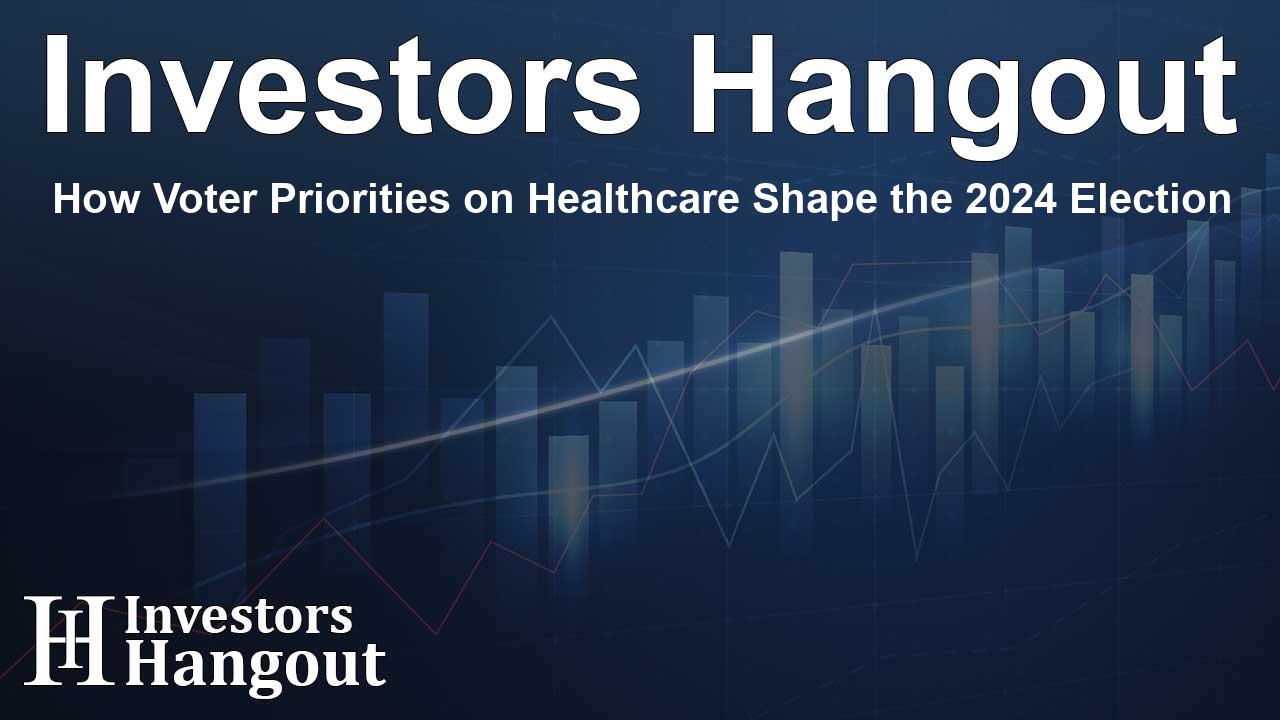How Voter Priorities on Healthcare Shape the 2024 Election

Understanding Voter Concerns on Healthcare
The upcoming presidential election is generating significant buzz, particularly concerning healthcare issues. A recent report reveals that a staggering 88% of voters are alarmed by the rising costs associated with their healthcare over the past few years. This sentiment is shared by both Democrats and Republicans, emphasizing a shared concern about the affordability and accessibility of medical care.
Healthcare Costs: A Unifying Concern
In a survey that included over 1,000 American adults, respondents expressed strong worries about escalating healthcare expenses. Notably, 59% of people mentioned that ensuring Medicare's sustainability should be a key focus for the next president. This concern highlights the importance of Medicare to many American families and individuals, especially as the population ages and healthcare demands increase.
Prioritizing Medical Care Affordability
Furthermore, 57% of those surveyed emphasized the necessity of addressing general medical care costs. This indicates a desire for systematic changes that support financial accessibility in medical services. Voters want reassurance that the healthcare system will be designed to alleviate the financial burdens they've been facing.
Managing Prescription Drug Expenses
Another priority revealed by the survey concerns prescription drug pricing, with about 50% of respondents marking it as a critical issue for the forthcoming administration. The increasing expenses associated with essential medications have raised alarm bells among citizens who rely on these drugs for their health.
Other Issues Rank Lower on the List
Interestingly, political issues that often dominate discussions, such as abortion access and vaccine safety, generated markedly less concern among voters, with only 28% and 9% respectively. This configuration suggests that, while these topics are important, healthcare affordability might be overshadowing them in the public psyche.
Insights from eHealth's Research
Fran Soistman, CEO of eHealth, commented on the findings, stating that they could provide valuable insights for political candidates aiming to resonate with the electorate. The urgency of the healthcare cost crisis is paramount, impacting the financial well-being of millions across the nation.
Shifting Perspectives on Healthcare Policy
Moreover, the survey indicated that a considerable number of respondents would entertain the idea of repealing the Affordable Care Act (ACA) in favor of a government-run healthcare system for all. This response marks a potential shift in public sentiment towards embracing more revolutionary healthcare solutions amid frustration with prevailing costs.
Understanding Voter Sentiments
Fran Soistman also indicated surprise at some findings, which show potential openness toward new policies among voters who are essentially fed up with the existing structure. While this research does not aim to endorse specific policies, it sheds light on consumer sentiments influencing the upcoming elections. The desire for a healthcare landscape that prioritizes affordability and accessibility may compel future administrations to reevaluate their healthcare strategies.
The Path Forward for eHealth
eHealth has been an influential player in providing health insurance solutions, functioning as a bridge connecting millions of Americans to essential healthcare coverage. With 25 years of experience, this independent licensed insurance agency is instrumental in empowering consumers to find the best healthcare options that suit their needs at reasonable prices.
By offering a diverse range of plans from over 180 different health insurers, eHealth's mission reflects its commitment to improving healthcare access. As the 2024 elections approach, the organization aims to stay at the forefront of healthcare discussions, ensuring that voter concerns are considered in policy-making processes.
Frequently Asked Questions
What healthcare issues are voters most concerned about for the 2024 election?
Voters are particularly concerned about the sustainability of Medicare, the overall cost of medical care, and prescription drug expenses.
How did the survey gauge public sentiment on healthcare?
The survey included over 1,000 responses from Americans, capturing a broad spectrum of opinions on healthcare issues ahead of the election.
What percentage of respondents expressed shock at rising healthcare costs?
A significant 88% of those surveyed expressed shock over the increased healthcare costs they have encountered in recent years.
Did any political issues rank higher than healthcare costs?
No, issues like abortion access and vaccine safety ranked much lower compared to the pressing concerns about healthcare costs.
How is eHealth contributing to healthcare solutions?
eHealth has helped millions find suitable healthcare coverage by providing information on diverse health plans from numerous insurers, aiming to alleviate financial burdens associated with healthcare.
About Investors Hangout
Investors Hangout is a leading online stock forum for financial discussion and learning, offering a wide range of free tools and resources. It draws in traders of all levels, who exchange market knowledge, investigate trading tactics, and keep an eye on industry developments in real time. Featuring financial articles, stock message boards, quotes, charts, company profiles, and live news updates. Through cooperative learning and a wealth of informational resources, it helps users from novices creating their first portfolios to experts honing their techniques. Join Investors Hangout today: https://investorshangout.com/
Disclaimer: The content of this article is solely for general informational purposes only; it does not represent legal, financial, or investment advice. Investors Hangout does not offer financial advice; the author is not a licensed financial advisor. Consult a qualified advisor before making any financial or investment decisions based on this article. The author's interpretation of publicly available data shapes the opinions presented here; as a result, they should not be taken as advice to purchase, sell, or hold any securities mentioned or any other investments. The author does not guarantee the accuracy, completeness, or timeliness of any material, providing it "as is." Information and market conditions may change; past performance is not indicative of future outcomes. If any of the material offered here is inaccurate, please contact us for corrections.